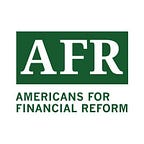As we celebrated the Labor Day holiday recently, there were many reflections on workers and their role in the economy. Naturally, this year those reflections included discussions of how the COVID-19 pandemic has impacted working conditions and dramatically increased job insecurity and unemployment. In many ways the pandemic has laid bare existing flaws and inequalities in our economy, including systemic racism, and accelerated trends that have been harming workers for years. In order for workers to fully recover from this crisis, policymakers must look far beyond short-term relief measures.
One example of economic trends harmful to workers worth examining is the role of private equity in the economy. The growth of private equity has been a defining feature of the American economy over the last decade. Assets held by private equity firms have grown from $1 trillion before the 2008 financial crisis to $6.5 trillion in 2019. Today, private equity controls 8000 companies that employ almost 9 million US workers. This has resulted in dozens of private equity millionaires and billionaires, but as you might have guessed, it has not been so great for workers.
The private equity business model is based on buying up existing businesses using massive amounts of borrowed money and saddling the newly acquired companies with the debt. Private equity firms then “restructure” the companies, which is usually a synonym for aggressive cost-cutting and layoffs. The private equity owners also frequently sell off valuable assets and take on additional debt to pay themselves dividends before taking the portfolio company public or selling it to another buyer, often weakened by the loss of those assets and the debt commitments. The acquired company, not the private equity firm, is responsible for repaying the debt, even if these costs leave them with insufficient resources to thrive and grow, to adequately carry out their business, or to pay workers fairly. The private equity firm is in a “heads I win, tails you lose” situation where the owners benefit if the company does well, but they can also benefit by extracting resources for themselves, even if it harms or even destroys businesses that would otherwise survive.
This strategy has devastated employment in retail, with many companies collapsing under debt loads imposed by private equity firms. The last decade has seen household names like Toys-R-Us, Payless Shoes, Neiman-Marcus, and J. Crew disappear, even as private equity executives got rich off of those deals. When stores close, thousands of workers lose their jobs, often with little or no severance pay. Private equity is also increasing racial inequality. While mostly White private equity executives make millions, one in four retail workers are at or near the poverty threshold — a proportion that is even higher for Black or Latinx retail workers who account for 4 in 10 workers because of discriminatory practices and occupational segregation. Workers at companies that stay in business are often squeezed by lower staffing levels, pay cuts or freezes, reductions in benefits and time off. All too often, firms employ complex ownership structures and other tricks to avoid paying pension obligations, like in the case of Sun Capital vs the New England Teamsters pension fund, which is now before the Supreme Court.
Unfortunately, private equity firms also squeeze workers beyond just those they employ. The strategy of “rolling up” similar competing companies to create local or regional monopolies and then squeezing consumers defines many private equity deals. Private equity firms have also played a decisive role in gutting local newsrooms across the country, degrading our critical democratic institutions. And like many Wall Street millionaires and billionaires, private equity executives further undermine our democratic processes by pouring money into political ads (like the ones that torpedoed bipartisan legislation to end surprise medical billing) and elections (like they’re doing now in the most closely contested Senate races) to protect their business model.
In many ways, the private equity industry embodies some of the worst impulses of Wall Street, squeezing profits at the expense of workers and consumers, and insulating bad actors from risks. But these abuses are not inevitable. On the contrary, they are the result of laws and regulations that can and should be changed. Policymakers need to stand up to Wall Street, like Senators Elizabeth Warren, Bernie Sanders, Tammy Baldwin, and Kirsten Gillibrand did in introducing the Stop Wall St Looting Act last year, along with Representatives Pocan, Jayapal, García, Grijalva, Khanna, Lee, Pressley, Schakowsky, and Tlaib in the House. The executive branch can also do much more to choose workers over Wall Street. The next president can appoint tough regulators to federal agencies like the Securities and Exchange Commission and the Federal Trade Commission who will close loopholes, demand answers, and enforce the law to protect workers and the public interest. That is a key part of what it will take to put us on track to a better Labor Day for working people next year.
